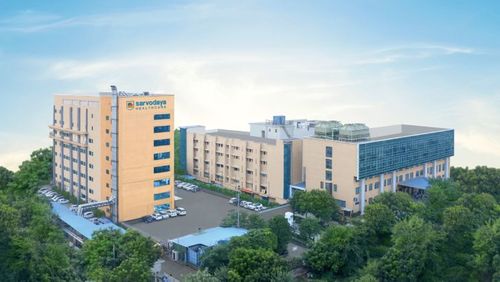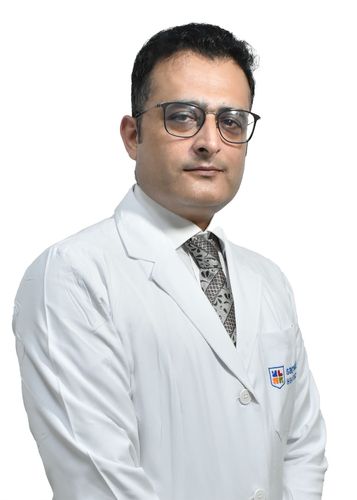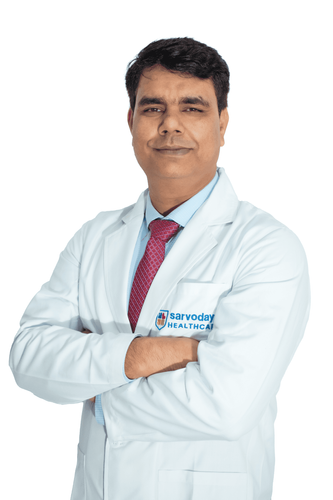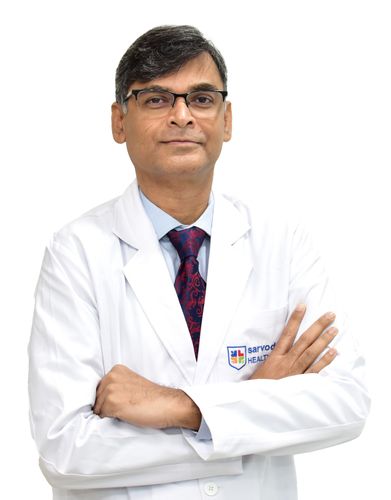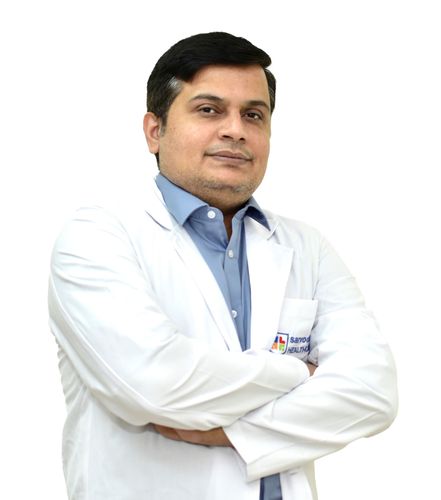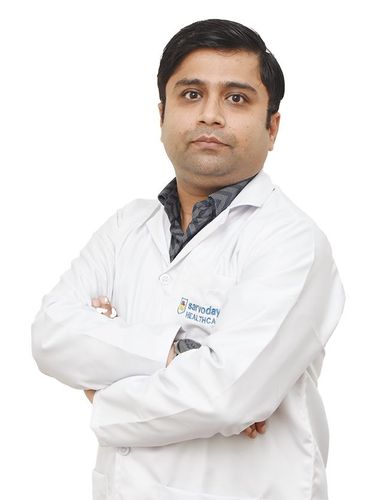Overview
At Sarvodaya Hospital, a leading Minimally Invasive Brain Surgery Hospital in Delhi NCR, we treat complex conditions with smaller cuts, less blood loss, and a quicker recovery.
Our expert neurosurgeons use endoscopic and stereotactic-guided approaches to operate with high precision, helping reduce scarring, shorten hospital stays, and lower infection risk.
Why is minimally invasive brain surgery required?
We recommend minimally invasive approaches when a smaller, safer access route can reach the target effectively. These may be suitable for selected brain tumours, pituitary tumours, skull base lesions, hydrocephalus, colloid cysts, certain vascular abnormalities, intracranial biopsies, and some cases of trigeminal neuralgia.
Your candidacy depends on the diagnosis, size and location of the lesion, symptoms, and overall health.
At our Neurosurgery Hospital in Faridabad, Delhi NCR, if a minimally invasive route will not deliver the same safety or completeness as a traditional approach, we explain alternatives clearly and guide you to the best option for long-term outcomes.
Procedure of minimally invasive brain surgery
We plan your operation with MRI/CT and neuronavigation. Under general anaesthesia, the surgeon reaches the target through a keyhole craniotomy or natural corridor. High-definition endoscopes provide a close, bright view. Stereotactic guidance helps us access small or deep targets precisely while protecting healthy tissue.
We remove or repair the problem area, control bleeding, and close carefully to minimise scarring. After surgery, you recover in a monitored unit, begin gentle mobilisation early, and receive clear updates on results and next steps.
Technology and Infrastructure
Sarvodaya Hospital, a leading neurology hospital in Delhi NCR, offers advanced neurosurgical care with state-of-the-art infrastructure. Our operation theatres feature cutting-edge technology like the ZEISS TIVATO 700, CUSA Excel, and Versa HD 6D LINAC for safe, precise, and minimally invasive procedures.
With neuro-navigation, intraoperative monitoring, advanced imaging, and a dedicated neuro ICU, we ensure seamless care from diagnosis to recovery, reducing risks and supporting faster healing through integrated rehabilitation.
Benefits of Minimally Invasive Brain Surgery
Choosing minimally invasive brain surgery at our advanced neurosurgery centre in Delhi NCR offers patients safer, precise, and faster recovery options. These techniques are designed to reduce trauma while ensuring accuracy and long-term outcomes.
- Smaller Incisions, Less Scarring: Tiny openings minimise cosmetic impact and speed up healing.
- Reduced Blood Loss & Infection Risk: Less trauma to healthy tissues lowers complications.
- Faster Recovery & Shorter Hospital Stay: Enables patients to return to normal life sooner.
- Less Post-operative Pain: Minimises discomfort and allows earlier mobilisation.
- High-definition Visualisation: Advanced imaging ensures accurate removal of tumours or cysts.
- Safe Access to Complex Areas: Natural brain corridors are used to reach deep or skull-base regions.
- Personalised Treatment Approach: Each case is carefully evaluated, and alternatives are suggested if minimally invasive methods are not the safest or most effective.
- Improved Long-term Outcomes: Reduces complications, enhances recovery, and supports better quality of life.
Post-Treatment Lifestyle Modifications
After brain tumour treatment at Sarvodaya Hospital, one of the trusted neurology hospitals in Delhi NCR, adopting supportive lifestyle habits helps recovery and protects long-term brain health.- Rest and Routine: Begin with gentle activities and gradually increase under your neurologist’s guidance. Structured rest ensures energy restoration and smoother healing.
- Wound Care: Keep the surgical site clean and dry. Watch for redness, swelling, or discharge, and promptly inform your care team.
- Medicines: Take prescribed medicines on schedule. Do not self-adjust or stop without consulting your neurologist.
- Balanced Diet and Hydration: Focus on high-protein, nutrient-rich meals with adequate hydration to promote strength, immunity, and overall healing.
- Sleep and Stress Management: Prioritise quality sleep and practise relaxation or breathing exercises to reduce fatigue and anxiety.
- Screen Time and Strain: Limit prolonged screen use to ease headaches, eye strain, and mental fatigue during early recovery.
- Work and Travel: Resume work, travel, and heavy lifting only after clearance from your neurology hospital near you.
- Follow-Ups and Rehabilitation: Attend scheduled reviews. Physiotherapy, occupational, or speech therapy may aid functional recovery.
- Urgent Care: Seek immediate help for seizures, severe headaches, high fever, confusion, or wound leakage. Early attention ensures safe recovery.
Our Specialists also available here:


